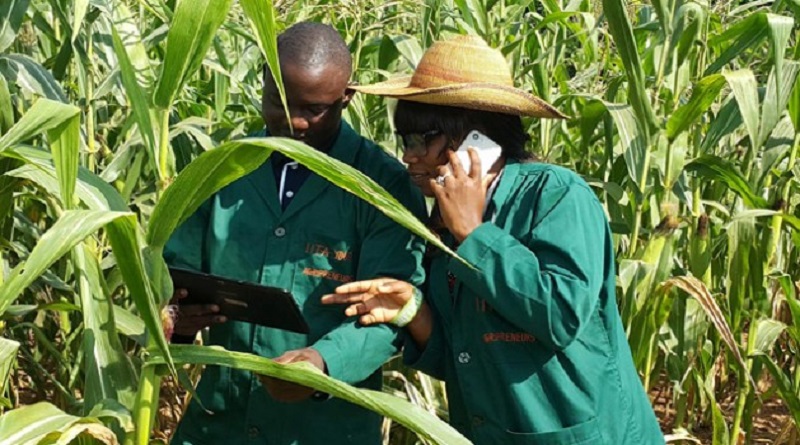Agricultural Technology: Study highlights challenges facing young people
Young African innovators are taking charge of their future and designing innovative agricultural technologies despite lacking access to finance, innovation hubs, and information according to a new report released by the Mastercard Foundation Youth Think Tank. At a launch organized by Restless Development in partnership with the Foundation, 14 youth researchers presented findings from Building Inclusive Agricultural Technologies for Young People, a report highlighting barriers and opportunities to the creation of agricultural technologies, their promotion, and uptake by young people.
“Elevating the voices of young people and trusting in their ability to solve the challenges they face is a core value at the Foundation,” said Peter Materu, Chief Program Officer, Mastercard Foundation. “This report demonstrates how young people are using their ingenuity to develop technology that has the potential to create employment opportunities for their peers and provide dignified and fulfilling livelihoods in the agriculture sector. Their recommendations in this report are actionable. It is essential that we listen and act.”
The Youth Think Tank was established in 2012 to ensure young people were meaningfully engaged in improving their economic opportunities in Africa. The youth-led international development agency Restless Development recruits, trains, and supports the young researchers. This year’s cohort ranges in age from 15- 24 and they are from rural and urban areas in East, West and Southern Africa. They also have a diverse set of educational and employment backgrounds. In addition to conducting research, YTT members have been trained as advisors and consultants, and equipped with skills that will enable them to provide strategic support on how to design, implement, and evaluate youth programs.
“The Youth Think Tank evidence-based research report is an echo of young people’s voices-our perspectives on the way things ought to be done,” said Patrick Lolung, Youth Think Tank member, Kenya. “The report has come at the right time when we, the young people, are rapidly advancing and incorporating technologies in our lives in every aspect. The findings and recommendations we arrived at perfectly address the current challenges we grapple with and [suggest] what could be the way forward for policy actors and other stakeholders.”
Through peer-to-peer research that included interviews, focus group discussions, and survey data, this year’s report provides key insights into how young people interact with technological innovations across various parts of the agrifood system in Africa.
Key Takeaways
*Agricultural technologies must be tailored to optimize opportunities for young people – particularly rural young men and women – to maximize on-farm production and ease their entry into off-farm activities.
* Young tech designers struggle to find resourced spaces where they can access information, mentorship, collaboration, as well as digital and offline tools to prototypes their designs.
* Agricultural technologies must be promoted using channels that are accessible to end-users. While tech designers often use social media to promote their products, end users tend to learn about new technologies by word of mouth.
*Even when young adopters are aware of technologies, they sometimes lack the skills to utilize them. Training in foundational, technical, and soft skills is required to ensure that young people can access and operate agricultural technologies.
*The biggest constraint that young people who design technologies and those who take them up face is financial. However, it is important to note that the two groups have different needs when considering financial products. For example, designers need seed capital products and competitive incubation grants, while end-users require loans with flexible repayment schedules that reflect an understanding of the agricultural season.




